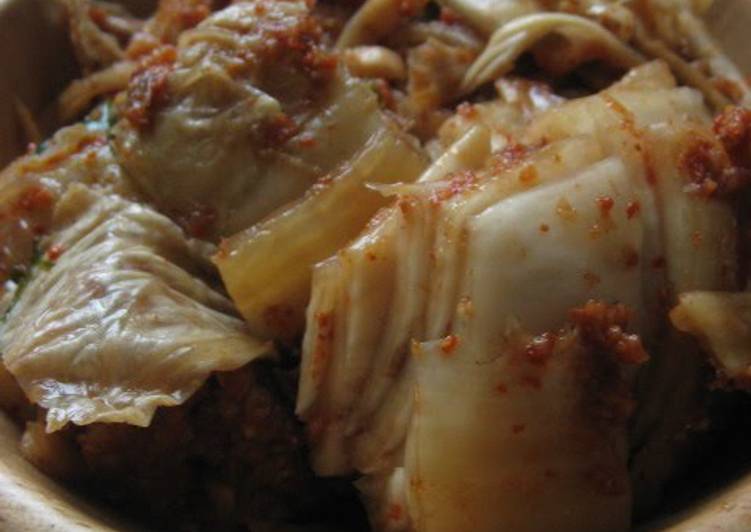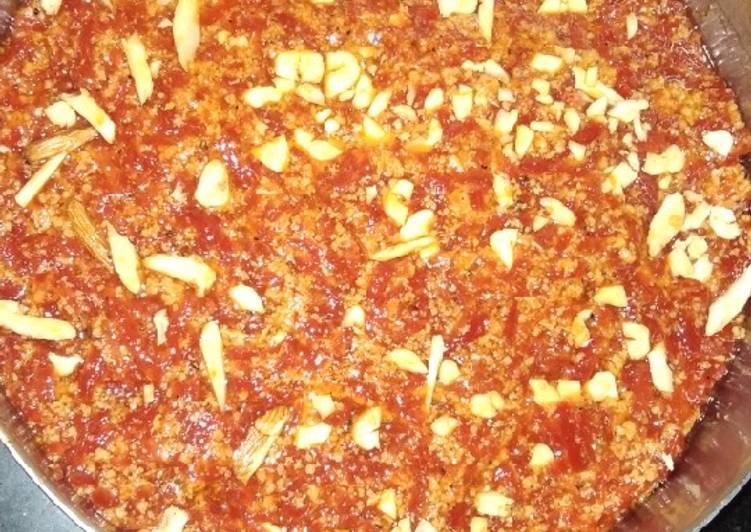
Hello everybody, it’s Jim, welcome to our recipe site. Today, I will show you a way to prepare a distinctive dish, expats: if you have chinese cabbage, let's make kimchi. It is one of my favorites. For mine, I’m gonna make it a little bit unique. This is gonna smell and look delicious.
Expats: If You Have Chinese Cabbage, Let's Make Kimchi is one of the most popular of recent trending foods in the world. It is simple, it’s quick, it tastes delicious. It is appreciated by millions daily. They are fine and they look fantastic. Expats: If You Have Chinese Cabbage, Let's Make Kimchi is something which I have loved my whole life.
Place the cut side down when draining. Now you are ready to make the seasoning and finish up the Kimchi! With my tips on how to pickle/brine Korean cabbages for Kimchi, you should.
To begin with this recipe, we must prepare a few ingredients. You can cook expats: if you have chinese cabbage, let's make kimchi using 13 ingredients and 8 steps. Here is how you can achieve it.
The ingredients needed to make Expats: If You Have Chinese Cabbage, Let's Make Kimchi:
- Make ready 2 kg Chinese cabbage
- Make ready 120 ml Korean coarse grind red chili pepper
- Get 1 medium bulb Garlic
- Take 50 grams Ginger
- Prepare 1/2 Apple (or Asian pear)
- Get 1/3 large Onion
- Get 3 to 4 stalks Green onion
- Take 1/3 Daikon radish
- Make ready 3 tbsp Sakura shrimp (or dried shrimp)
- Get 70 ml Korean fish sauce
- Make ready 1 tbsp Flour (mixed with 3-4 times the amount of water and microwaved)
- Prepare 1 tbsp Sugar
- Get 8 grams Dashi stock granules (I used kombu)
Also called Chinese leaves, Chinese cabbage has pale, tightly wrapped, succulent leaves with Kimchi is surprisingly easy to make and makes a great addition to rice dishes or a pork sandwich. Stored unwashed in a plastic bag in the salad drawer of the fridge, Chinese cabbage should keep. This is made from different vegetables. The main ingredient is Napa cabbage or Chinese Cabbage.
Steps to make Expats: If You Have Chinese Cabbage, Let's Make Kimchi:
- Tear the cabbage into 4 or 6 pieces depending on their size. Add 40 g of salt to every kilo of cabbage, salting heavily on the white stems.
- Put the cabbage in a container large enough to hold them. Put a weight on top and leave overnight. I put on a large plate and placed filled water bottles on top.
- The next day, wring out the cabbage lightly, and let dry naturally.
- Blend the ginger, garlic, apple, and onion together into a paste (if you find it hard to form a paste, add fish sauce for liquid).
- Cut the daikon radish into quarters and slice. Cut the green onions into 3 cm pieces. Cut the white parts in half lengthwise.
- Add the chili pepper, fish sauce, dashi stock granules, flour paste, daikon radish and green onion to the paste from Step 4.
- Push the paste in between the white parts of the cabbages, and roll up the leaves.
- Put the cabbage into a plastic bag and leave for 1 to 2 nights at room temperature. Store in the refrigerator. Wait for at least a week before eating.
Before you proceed to the recipe, make sure that you have a large mason jar with cover or a custom kimchi Let the air escape from the container by opening it. Seal it once more and place inside the. There are a few ways to make traditional kimchi, but my kimchi recipe is how my grandma If you like my Real Korean Napa Cabbage Kimchi Recipe, please share with your friends and family via your social network! In a small sauce pan, add water, dried pollack. It's kimchi making season in Korea!
So that is going to wrap this up with this exceptional food expats: if you have chinese cabbage, let's make kimchi recipe. Thank you very much for reading. I am confident you can make this at home. There is gonna be more interesting food at home recipes coming up. Remember to bookmark this page on your browser, and share it to your loved ones, friends and colleague. Thank you for reading. Go on get cooking!

